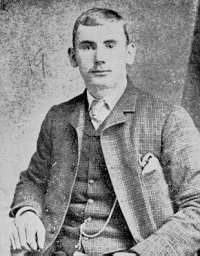
The Island's northeast coast had provided both Whiteway and
Bond with strong electoral support from among the area's fishermen.
Growing disillusionment by fishermen with the political and
economic system enabled a new political movement to emerge in 1908
with the formation of the Fishermen's Protective Union (FPU) led by
William Ford Coaker who in 1910 created a political party with deep
organizational roots in the social life of the outports.
Circumstances were favourable in 1908 for the formation of a fishermen's union, according to Coaker's biographer, historian Ian McDonald. "An unusual large catch coupled with disordered marketing produced a temporary but harsh depression that saw fish prices in many cases cut by half, leaving, thousands of fishermen angry and frustrated," McDonald writes. "However, that depression...was only the occasion for the union's creation, for the underlying tensions upon which it fed had long existed." In 1908 the 37-year-old Coaker was able "to channel the frustrated energies of fishermen and to shape their future course" (McDonald, "Coaker and the Balance of Power" in James Hiller and Peter Neary, eds., Newfoundland in the Nineteenth and Twentieth Centuries, Toronto, 1980, p. 155).
Born in St. John's the son of a carpenter, Coaker before 1908 had been at various times an outport mercantile clerk for a St. John's merchant, a merchant (who lost everything in the 1894 bank crash), a telegraph operator, a political supporter of Robert Bond in the 1897 election, and a farmer. From the late 1890s he operated a farm on an island near Herring Neck in Notre Dame Bay, where he read widely on the social and political issues of the day.

On November 2, 1908 he convened a meeting of fishermen at Herring Neck to found the FPU which adopted as its motto, "To each his own." According to his biographer,
"Coaker argued that the fishermen were exploited by a manifestly unjust economic system, that deprived them of their fair rewards by placing so much arbitrary power in the hands of the merchants. The commercial class along with the government was attacked for its failure to come to grips with the problems of fish quality and international marketing and for failing to improve the working conditions of loggers and sealers." (McDonald, "Coaker and the Balance of Power," pp. 1556)
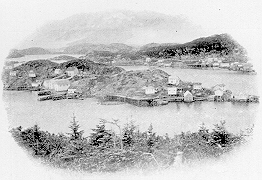
Coaker was critical of the churches whose clergy failed to provide the leadership to improve the moral tone of public life. Clergymen were more interested in spending education grants on the maintenance of church buildings rather than use for school buildings and the education of illiterate fishermen. The St. John's professional, educational, religious, and commercial classes were parasites living off the productivity of fishermen. In 1910 in the FPU's newspaper, the Fishermen's Advocate, Coaker asked his followers if each received his "own" when
"he boards a coastal or bay steamer, as a
steerage passenger and has to sleep like a
dog, eat like a pig, and be treated like a
serf? Does he receive his own at the seal
fishery where he has to live like a brute,
work like a dog...? Do they receive their own
when they pay taxes to keep up five splendid
colleges at St. John's...while thousands of
fishermen's children are growing up illiterate? Do they receive their own when forced to
supply funds to maintain a hospital at St.
John's while fishermen, their wives and daughters are dying daily in the outports for want
of hospitals?" (McDonald, "Coaker and the
Balance of Power," p. 156)
The FPU proposed a number of proposals that were embodied in the Bonavista Platform of 1912. Among the major ones were the following:
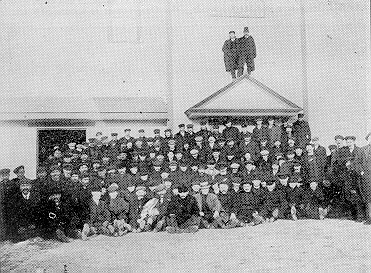
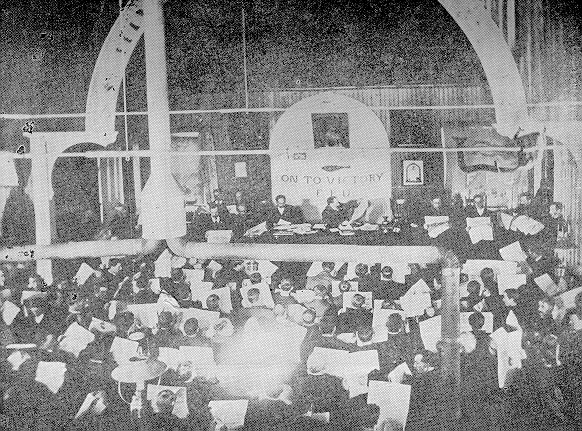
"Such a programme," Coaker told delegates to the FPU's annual
convention in 1912, "should fill every toiler with enthusiasm and
encouragement, for the operation of such a policy would completely
revolutionize the fisheries and be truly a period of progress that
places the toilers' interests above all others for the first time
in the political history of parties in this Colony. Every toiler
should be proud of such a policy and should never rest satisfied
until it is in operation" (quoted in W.F. Coaker, ed., Twenty Years
of the Fishermen's Protective Union of Newfoundland, St. John's,
1984 reprint of 1930 edition, p. 50).
In his efforts to implement the FPU's political agenda, Coaker had to convince either Prime Minister Morris or Liberal leader Robert Bond to adopt such proposals as their own. Coaker did not envision the FPU's political organization, the Union Party, as assuming the reins of political power as rather holding a "balance of power" after the next general election. This political strategy, contained in section 63 of the union's constitution, stated that the Union Party "shall not hold more than sufficient seats to secure the balance of power between the government and the Opposition parties, and no Union member of the Assembly shall be permitted to hold his seat if he sits on the side of the government or opposition..."
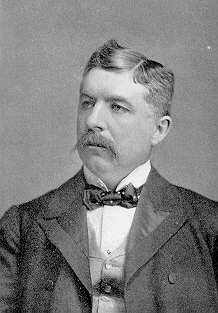
The prosperity associated with the first Morris administration
(1909 1913) had been, in part, the result of the coming into
production after 1910 of the Grand Falls pulp and paper mill (for
which the Bond Administration had been responsible for its
establishment) and the resultant increase in the colony's exports.
Local prosperity was also artificially-induced because of Morris'
economically unsound, but politically popular, branch railway line
policy. This policy saw the government spend $7 million for
unnecessary branch lines--more than 50 percent than he had promised--to repay his political debts to the Reid interests, which had
helped him in the 1908 and 1909 elections. By 1914 these expenditures had caused great concern among the Water Street merchants,
who had rallied around Morris in the 1913 election to stop the
political advance of the FPU, but whose support Morris now found
wanting because of his mismanagement of the public finances. To
pay for these expenditures, in the 1914 spring sitting of the
legislature the Morris administration had imposed an increase of
$650,000 in taxes that, therefore, effectively negated the cut in
taxes made prior to the 1913 election. Such policies resulted in
the national debt rising from $23 million in 1909 to $32 million in
1915.
Morris's first administration also enacted legislation in 1911
providing Newfoundland's first old age pension scheme; any male
aged 75 years and older who could prove they required financial
assistance received $50 per year. The implementation of such a
scheme had been discussed since 1907 when the Bond government
appointed a royal commission to investigate old age pensions in
response to a suggestion from A.B. Morine, the leader of the
Opposition. Morine had suggested a pension of $40 annually be paid
to men over the age of 65 years, rising to $50 at age 70 and $60 at
75. Morine's pension proposal would not be needs-tested. The
commission collected the necessary data on various scheme proposals, but the commissioners did not make a report because of the
political confusion surrounding the 19089 period. Both Bond and
Morris made granting old age pensions a feature of their political
platforms in both election campaigns. In 1911 Prime Minister
Morris's government implemented a system that a Canadian expert on
the subject has called the "first state-operated old age pension
scheme in Canada, more than two decades before such a programme was
adopted in any of the Maritime Provinces." Not only was Newfoundland's scheme based on limited funds, but throughout its history to
Confederation with Canada, it was available only to men and
"remained the most blatantly gendered scheme for the needy elderly
in the western world" Successive governments had been able to
control costs by "establishing a fixed limit to the total funds
available for expenditure.
In the first year funds for 400 pensions were voted. These funds were distributed to the various districts in proportion to their total population (rather than to their share of the elderly population or of the poor population). No matter how many elderly men were in poverty, only 400 would receive a pension. Since the elderly were not evenly distributed across the country but the pensions were, inevitably the criteria for acceptance would be harsher in some districts than in others. In some districts long waiting lists occurred, while in others there were vacancies for which there were no applicants. (See James G. Snell, "The Newfoundland Old Age Pension Programme, 19111949," Acadiensis, vol. XXIII, Autumn 1993, pp. 86109)
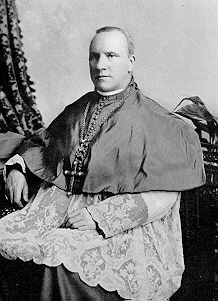
Having determined that Coaker's party posed no threat to his own electoral re-election chances, Morris rejected overtures of support from the Union Party, which in fact posed a great challenge to Bond's Liberal Party. For the 1913 general election Bond reluctantly agreed to an electoral alliance with Coaker. The Liberal Party was allowed to run five candidates in union areas with the Liberal-Union alliance winning in total 15 seats, 12 of which were in union-dominated districts. Rather than lead the alliance in opposition, Bond instead retired to his farm at Whitbourne leaving the leadership to James Kent, his deputy leader. Coaker was not interested in being leader as he preferred to concentrate on union-related businesses, social, economic, and political reasons which gave rise in the early 20th century to the Fishermen's Protective Union.
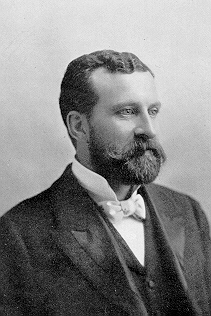
On the eve of the outbreak of war in August 1914 in Europe,
the political fortunes of the Morris government had declined
sharply in less than a year since its 1913 re-election. Indeed,
Morris himself was pessimistic of his winning of another election,
which would have to be held by the end of 1917. During the 1914
spring legislative session, the Morris administration found itself
under a barrage of questions from Coaker and his fellow Unionist
members in the Assembly. As Coaker noted in his maiden speech in
the Assembly, it was not "by accident that we have come here. A
revolution...has been fought in Newfoundland. The fisherman,
toiler of Newfoundland has made up his mind that he is going to be
represented on the floors of this House." During the session, the
Unionists questioned daily government policies and programmes and,
on occasion, forced Morris to adopt some legislation he otherwise
would not have. For instance, Coaker got Morris to pass legislation to improve working and living conditions for loggers and
sealers; however, Morris used his majority in the Legislative
Council to strip the legislation of any effectiveness. Concerning
the need for elected road boards in the outports, Coaker got Morris
to agree to a resolution which would see the necessary legislation
enacted at the 1915 session, a promise Morris subsequently kept.
It was against this background of growing public disenchantment with the Morris government that Morris in August 1914 agreed
to a highly unusual procedure for administering Newfoundland's war
effort--the appointment of a committee of citizens. The initiative
for this notion came from Governor Sir Walter Davidson, a
paternalistic and authoritarian representative of the Crown, but
Morris quickly grasped this idea of having such a committee work
under Davidson's guidance. On August 7, 1914, Davidson, with
Morris' approval, had telegraphed the British government that
Newfoundland would raise and equip a regiment of 500 men and
increase the size of the local Royal Naval Reserve from 600 to
1,000 men. Five days later he and Morris organized a meeting of
prominent St. John's citizens which, in turn, unanimously passed
resolutions calling on the Governor to appoint a public committee
to supervise and control Newfoundland's forthcoming part in the
war.
In effect, the Newfoundland Patriotic Association, as it was
named, took on the responsibilities of government that in other
countries were the work of department of militias. For three
years, the Patriotic Association carried out this work without any
legal authorization conferred upon by the legislature. The
Association's central committee eventually consisted of over 250
members, most of whom were St. John's residents. There were also
branches of the Association established in the outports as well,
but throughout its existence the Association was perceived by the
outports as a St. John's organization. The Association had the
following sub-committees to implement its programmes: finance,
reserve force, proclamation, musketry, physical fitness, nominating, equipment, transport, officers, selection, recruiting, non-combatant selection, forestry, employment, food, war history, war
memorial, pay and pensions board, fund raising, and hospital (see
Patricia O'Brien, The Newfoundland Patriotic Association: The
Administration of the War Effort, 19141918, M.A. Thesis, Memorial
University, 1982).
In creating the Patriotic Association, the Morris administration hoped to remove partisan politics from the war effort and,
thus, improve its own public image. To do so, the administration
successfully first got Liberal, and then Unionist support for the
Association. Morris hoped that this broad, political unity would
also divert public attention from the widespread commercial and
economic dislocations and inflation that would certainly follow as
a result of war. It must, furthermore, be noted that the politicians, not only in Newfoundland but also in Europe, believed that
the war would not last beyond the end of 1914. Consequently, the
Morris administration saw the Association as a means of avoiding
the slow, cumbersome, and expensive process of establishing the
necessary government machinery for directing Newfoundland's war
effort.
Finally, since Morris was unwilling to enter into a coalition
government with the opposition and thus put his administration
under the direct influence of the Union Party, the Patriotic
Association for Morris was a way around the problem of creating a
unified political front. The Liberals proved receptive to this
non-partisan approach and three important Liberals--leader J.M.
Kent, J.A. Clift, and W.F. Lloyd, editor of the Evening Telegram--
joined the Association's central committee. As for Coaker, he
initially opposed the Association's formation and demanded an
immediate emergency session of the legislature to deal with
economic problems in the fisheries. Specifically, he believed that
Newfoundland's military contribution should be made through an
expansion of the existing Royal Naval Reserve, for which the
Imperial government would pay much of the cost. A land force he
considered to be extravagant and wasteful and one that could only
lead to increased taxation. Coaker also wanted fish price supports
and public regulation of prices for provisions to control the cost
of living, demands which Morris could not seriously consider
because of Water Street opposition. By the time in September 1914
Morris did call the legislature together, the existence of the
Patriotic Association was well-established and Coaker eventually
supported the Association.
Despite the existence of the Patriotic Association, public
support for the Morris administration continued its downward slide.
In early 1916 Morris sought to weaken the Liberal-Unionist
opposition through the appointment of Liberal leader J.M. Kent as
a judge of the Supreme Court. However, this tactic backfired as it
drove Lloyd, the new Liberal leader, and Coaker into a more formal
alliance on March 25 in anticipation of a forthcoming election
scheduled to be held within the next year, an election they
confidently believed they would easily win. In December 1916
Morris secretly got permission from the British government to
extend the life of the legislature by one year if necessary.
On May 25, 1917 Morris approached Lloyd and Coaker to form a coalition government out of the three political parties under his continued leadership. While the Liberal-Unionist alliance was preparing for the election due sometime in 1917, Morris took no measures to improve his own party's chances for the election. The only action he did take was to appoint in May 1917 a High Cost of Living Commission to investigate profiteering allegations against Water Street merchants, many of whom played prominent roles in the Patriotic Association.
The opposition, buoyed by public anger over the profiteering
charges, rejected Morris' overtures for a coalition. The June 8
publication of the Commission's first report only tended to
reinforce the confidence of the Opposition. That Report revealed,
for instance, that a flour combine operated in St. John's and that
at least $600,000 in excess profits had been made by importers.
The Report also exposed that one large shipping company had
increased its rates by an estimated 500 percent. The Commissioners
observed that they could find no justification for such large rate
increases. Public disenchantment in St. John's became manifested
in a successful month-long labour strike in 1918 following the
formation of the Newfoundland Industrial Workers' Association
(NIWA) among the employees of Reid Newfoundland for higher wages.
(Further details on the strike is examined in a recent article by
Peter McInnis, "All Solid Along the Line: The Reid Newfoundland
Strike of 1918," Labour 26, Fall 1990, pp. 6184.)
On June 15 Morris publicly announced his intention to have
legislation enacted extending the life of the House of Assembly by
one year. Faced with the reality of a postponed election, Lloyd
and Coaker struck a secret deal with Morris for the creation of a
coalition government, a deal of which Morris did not tell even his
closest supporters of some its provisions. The essence of this
deal was that the Liberals and Unionists would join with the
majority people's party members to form a coalition cabinet
composed of equal representation from all three groups. There was
also a guarantee of an election in 1918. Morris would continue to
be Prime Minister. The secret part of the deal provided for
Morris's resignation as Prime Minister by the end of 1917 and his
replacement by Lloyd. Morris also agreed to opposition demands for
the establishment of a militia department to assume the work of the
Patriotic Association and for the imposition of a tax on business
profits. Thus, on July 17, 1917, the National government took
office with Morris as Prime Minister and Lloyd and Coaker as
influential cabinet ministers. Soon afterwards, Morris left
Newfoundland to attend the Imperial War Conference leaving Lloyd as
acting Prime Minister and, in effect, in control of government.
One of the first acts of the National government was the
passage of an extension bill, extending the life of the Assembly
for another year. Other legislation provided for the creation of
the promised militia department, the imposition of a profits tax
act which imposed a tax of 20 percent on net business profits for
the calendar year 1917 in excess of $3,000, and the restriction of
the powers of the Legislative Council in money matters. Coaker was
also able to provide a guaranteed price for fish to fishermen by
setting a price and warning that the government would not issue
insurance policies to exporters offering to buy fish below the set
price. At this time, there was a shortage of local tonnage--the
Water Street merchants had sold many of their ships to Russia,
under the guise of helping the war effort, for lucrative
profits--and merchants had great difficulty in securing private
insurance policies for sailing vessels carrying cod to the
Mediterranean markets. The National government also created a
shipping department under the direction of John Crosbie to handle
tonnage matters.
As the end of 1917 neared, rumours circulated of Morris'
pending resignation (Morris was still in England), but his people's
party supporters dismissed them as idle speculation. Yet, the
resignation did occur in late December 1917, with Morris accepting
an appointment to the British House of Lords as Baron Morris of
Waterford. However, Morris never got the appointment of Newfoundland High Commissioner to Britain, which apparently was part of the
deal in setting up the coalition cabinet. When his former people's
party supporters remaining in cabinet found out about this pending
appointment, they vetoed the nomination out of anger in being duped
by Morris, who had negotiated such a profitable exit for himself
out of Newfoundland politics.
The Lloyd National government, which took office on January 5,
1918, had to face the difficult problem of deciding whether to
implement conscription to provide needed manpower for the depleted
Royal Newfoundland Regiment. This was a problem which Morris had
managed to avoid in the past, but on April 9, 1918, the British
government informed Newfoundland that the Regiment would have to be
withdrawn, if more recruits were not forthcoming. The Regiment was
short its authorized establishment by 170 men and that it needed
300 men immediately and 60 per month thereafter. By April 1918
Newfoundland already had had over 8,000 men in all the services,
while it rejected another 6,246 volunteers on medical grounds. The
overall casualty rate for the Regiment was 20 percent, a figure
more than double that for the Canadian army. The most famous
battle the Regiment took part--and one that had the most disastrous
effect-- was at Beaumont Hamel on July 1, 1916, when the Regiment
suffered an appalling casualty rate of 90 percent.
The Newfoundland government also found itself under pressure
locally from various groups for conscription as well. In early
1918, for instance, the Loyal Orange Order, the Society of United
Fishermen, and the Methodist Church Conference--all St. John's
based--passed resolutions in support of conscription. The
Presbyterians expressed similar support, while the Roman Catholic
Church remained quiet on the issue, its silence being akin to
consent. Within St. John's itself, there was general support both
for the war and conscription. The outports, however, were a
different matter and the people strongly opposed conscription
because of the nature of outport economy and society. For outport
fishermen, conscription meant a disruption in the fishery, since it
would take badly-needed manpower from a fishery which was now
experiencing considerable war-induced prosperity. The loss of men
not only affected families but also whole communities, especially
those communities dependent on the Labrador schooner for their
economic survival. In the spring of 1918, then, the booming
fishing economy was already short of manpower, and parents were
reluctant to allow their sons to become volunteer recruits, let
alone conscripts. Fish prices between 1915 and 1919 were 65%
higher than their 191014 average (Hiller, "Newfoundland Confronts
Canada," p. 447).
Coaker was well aware of the strong outport aversion to
conscription, but he faced strong pressure within cabinet to
support conscription. His choice was to either support Lloyd or to
withdraw the support of the Union Party from the National government. On April 13, 1918 Lloyd announced that his government would
first hold a referendum on the conscription issue, a posi-tion
Coaker reluctantly supported in public. However, the Newfoundland
government bowed to British pressure and announced that conscription would be brought in without a referendum, a move it decided to
take since it feared a referendum vote would go against conscription. On April 26 Coaker announced that he supported this new
position by the National government, despite the many anti-conscriptionist messages that had flowed into FPU headquarters for
the past month. The membership reaction to his decision was quick
and swift. FPU Councils met and passed resolutions condemning
Coaker's position, in which his members perceived him as favouring
St. John's interests over those of the outports. In some Union
homes pictures of Coaker were smashed, while in Union Council halls
the instruments of authority were either returned to headquarters
or turned against the wall. Coaker had decided to support
conscription, because the National government had proven itself
receptive to Union--sponsored measures since its formation in July
1917 and his continued presence in such a government he considered
necessary to implement a FPU fishery reform programme. To soften
the blow of conscription and legislation extending the life of the
Assembly for another year, the Lloyd government also passed an
income tax to cover those professional and middle class people
whose incomes were not taxed by the 1917 business profits tax.
It was Coaker's hope that the mere passage of the conscription
act itself would stimulate increased voluntary enlistment by the
May 24 deadline for the registration of conscript eligible men.
This is exactly what happened. Six hundred men enlisted by May 24,
thereby providing the Regiment with sufficient numbers to meet its
needs until the end of September. While a campaign by war veterans
no doubt had the desired effect in securing more volunteers, others
enlisted voluntarily rather than wait to be conscripted. In the
end, those who registered for service did not have to report for
duty until September 1, 1918, because of the availability of a
sufficient number of volunteers. Instead, they received a leave of
absence without pay until October 15, by which date they received
a further leave of absence until November 15 because of a local
epidemic of influenza. With the end of war on November 11, the men
were given an indefinite leave of absence. While none of the men
ever saw active duty, the implementation of conscription did have
serious political repercussions on the FPU and divisions developed
among the members, some of whom would never hold Coaker in the same
esteem as they previously had.
While Coaker found the National government much to his liking
and even some people's party politicians found they could work in
harmony with Coaker, the opposition of Archbishop Edward Roche and
the Roman Catholic Church to the FPU had remained unchanged.
Although he had failed in his bid to prevent the creation of the
Lloyd government, in May 1919 Roche was successful in having the
government defeated in the Assembly. It was Roche's goal that the
old alliance of Roman Catholics and the Liberal Party be forged
once more under the leadership of the retired Sir Robert Bond.
Thus, to retain Roche's support for his own future leadership
ambitions and future support in Roman Catholic districts as well to
win the support of the Water Street merchants, Michael Cashin, the
leader of the people's party, decided to make a break with the
government. In doing so, it was Cashin's hope that Roche's
enthusiasm for Bond would soon subside and that Bond would not
return to active politics.
On May 20, 1919, Cashin rose in the House of Assembly and
moved a vote of non-confidence in his own government. When nobody
else stood to second the motion, Prime Minister Lloyd rose and did
so, much to the surprise and laughter of other members in the
Assembly. Lloyd did so presumably because he believed that Cashin
did not really intend to bring down the government; rather, it
apparently was Cashin's intent to have the motion not carry and
Lloyd continue on as Prime Minister depending on his political
survival on the people's party wing of the coalition and thus
separate Lloyd from the Union wing. Cashin had counted, it seems,
on the motion failing through some of the people's party members
either abstaining or even voting against the non-confidence vote.
Once the motion failed, Cashin then would be able to disassociate
himself from the Lloyd government, while at the same time being
able to defeat the government through the withdrawal later of
support by the people's party. Thus, Cashin hoped to ingratiate
himself with the Water Street merchants for having split with
Coaker and, hopefully, impress Roche with his forthright stand in
trying to defeat the Coaker-influenced National government.
Lloyd's action, in any case, foiled whatever strategy Cashin
had had in mind, for the Assembly unanimously passed the motion.
Governor Sir Alexander Harris then called on Cashin to form a new
administration, which included former Liberal Albert Hickman and
former Unionist John Stone. As for the remaining members of the
Union Party, they remained a strong, united force under Coaker's
leadership, while the Liberals were in disarray following Lloyd's
acceptance from Prime Minister Cashin of a position as registrar of
the Supreme Court. Leaderless, the Liberals spent the summer of
1919 awaiting a decision from Bond to their request that he return
to lead them in the forthcoming general election. Hovering in the
background to seize the mantle of Liberal leadership, if Bond
remained retired, was a former Morris protege who in January 1918
had broken with the Lloyd national government, Richard Squires.
Elected as a MHA for Trinity in 1909, Squires had lost his
seat in 1913 and accepted an appointment to the Legislative Council
and served as Morris' Colonial Secretary. Following his break with
Lloyd, Squires had established his own newspaper in preparation for
his leadership ambitions. Despite being a Morris supporter, local
party affiliations were fluid enough for Squires to switch easily
to Liberal ranks without his action creating a political backlash.
Once Bond declared his intention to remain retired, "I have had a
surfeit of Newfoundland politics lately, and I turn from the dirty
business with contempt and loathing," Bond wrote to a Liberal
power-broker who quickly threw his support behind Squires--Squires
immediately set his plans in action. On August 21 he launched a
new political party, the Liberal Reform Party, and entered into
negotiations with Coaker for an electoral alliance, agreement
finally being consummated on September 22.
The alliance was a marriage of convenience between the two
leaders who mistrusted each other. Yet, each man needed each other
to achieve their goals--Squires to attain the Prime Ministership and
Coaker to achieve political power to implement the various
fisheries reforms long sought by the FPU. Under the agreement
between the two, the FPU would be allowed to run candidates in
three districts previously reserved for Liberals, thus giving the
Unionists the ability to win 12 seats in the Assembly and form the
largest single block of influence in any Squires-Coaker administration (a small group of seats would be controlled by William Warren,
a Bond Liberal). Squires also agreed to allow Coaker a free hand
as the Minister of Fisheries and Marine to shape fisheries policy
as he wished. In the November 3, 1919 general election, the
Squires-Coaker alliance won 24 of the 36 seats in the Assembly,
thus placing Coaker in a strong position of power to address the
pressing problems which he felt threatened the Newfoundland
fisheries.
Source: Melvin Baker, "History 3120 Manual: Newfoundland History,
1815-1972 (St. John's, Division of Continuing Studies, Memorial University
of Newfoundland, 1994)